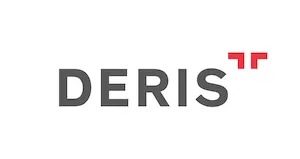| Case Name and
Citation:
|
EN-TA REKLAM TURIZM TEKSTIL GIDA KOZMETIK TIC.LTD.ŞTİ vs. ORTADOĞU TEKNIK ÜNİVERSİTESİ - MIDDLE EAST TECHNICAL UNIVERSITY (NIC.TR / DOMAIN NAME ADMINISTRATION); Case No:2010/162; Decision No: 2012/61 (4th Ankara Court of Intellectual and Industrial Rights, March 26, 2012) |
| Marks Associated
with Goods/Services: |
Plaintiff's trademark application no: 2009/27906 dated May 29, 2009 “BING” covering goods in classes 25 and its domain name application for BING.COM.TR dated May 27, 2009; intervening party’s trademark registration no:2009 19291 “BING” and reg.no: 2009/19313 “BING” dated March 02, 2009 |
| Overview of Decision
and Ruling: |
The plaintiff asserted that:
- since their domain name application dated May 27, 2009 is prior than MICROSOFT’s domain name application, they are the right owner of the BING.COM.TR due to the principle “FIRST COME FIRST SERVED” and,
- their domain name registration has been based on their trademark application BING covering class 25 and dated May 29, 2009 and since the activity areas of the parties are different, there is no risk of confusion and no risk of unfair competition,
- they are not aware of MICROSOFT’s BING trademark.
And requested the cancellation of the decision of the Domain Name Administration concerning the cancellation of their domain name registration upon MICROSOFT’s opposition.
The defendant asserted that:
- the domain name registration BING.COM.TR in the name of the plaintiff has been cancelled upon MICROSOFT’s opposition filed on the basis of the unfair petition and applicant’s bad faith,
- all registration, opposition and cancellation process is appropriate with the “.tr” Domain Names Policies, Rules and Procedures”
The intervening party MICROSOFT CORPORATION claimed that;
- they are the right owner of the trademark BING which is registered in several countries since 2008 ,
- they have a trademark application filed on March 02, 2009 and therefore the trademark BING should be protected in their name as from the application date in Turkey,
- the date of filing of their trademark application is prior than the date of filing of the plaintiff’s domain name registration
- BING is also a well-known trademark in Turkey and worldwide,
- according to the “.tr” Domain Names Policies, Rules and Procedures”, a domain name registration should be supported by a trademark application or a trade name and considering that when the plaintiff’s domain name application was filed on May 27, 2009 the plaintiff had not a trademark application for BING as it has been filed thereafter on May 29,2009,
Under these circumstances, they have asked the cancellation of the plaintiff’s domain name by filing an opposition before NIC.TR on the basis of the risk of unfair competition and bad faith of the applicant.
The Court stating that “.tr” Domain Names Policies, Rules and Procedures” should not be applied during the resolution of the litigation before the Court, has firstly decided that the “Regulation concerning the Domain Names” published in the Official Gazette no: 27752 and dated November 7, 2012 , Code of Obligations and Code of Commerce should be applied for the case.
On the other hand, in the light of the above-mentioned facts and evidences submitted, The Court determining that:
- The plaintiff had not a trademark application for BING on the date when the domain name application was filed,
- The intervening party has a prior right in respect f the trademark BING
- It is inconceivable that the plaintiff as business person in unaware of the intervening party and its trademark BING
- The domain name registration for BING has been filed in bad faith in order to benefit from the reputation of the intervening party and its trademarks
has ruled to rejection of plaintiff’s request.
|
| Importance of Case: |
Regulation concerning the “Domain Names” published in the Official Gazette no: 27752 and dated November 7, 2012 has been applied by the Court, the cancellation of the plaintiff’s prior domain name registration has been protected by the Court on grounds of unfair competition and plaintiff’s bad faith. |

